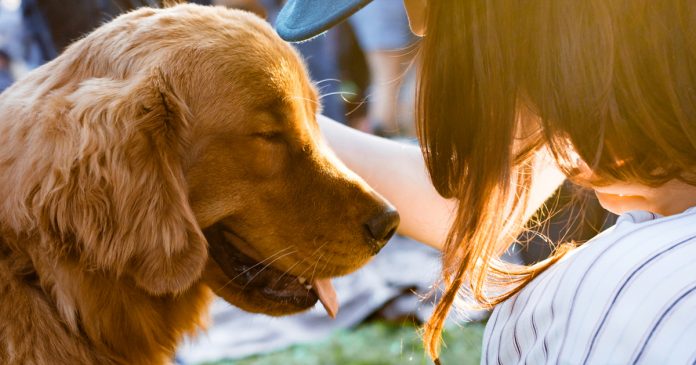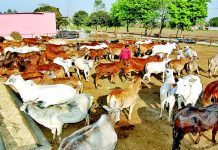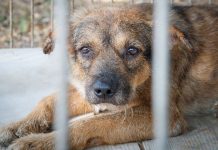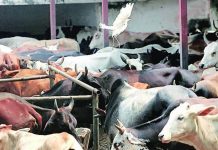This article is written by Kavana Rao from Symbiosis Law School, Noida. This article will be about a few organizations working for the welfare of animals in society. It covers organizations pan India and even overseas.
“The love for all living creatures is the most noble attribute of man”
-Charles Darwin
Table of Contents
Introduction
Animal welfare is the quality of life experienced by animals and includes an animal’s ability to cope with its surroundings and situations. Animal welfare is affected by the relationships human beings have with animals and it is the responsibility of the human race to peacefully coexist with animals and treat them humanely and with respect. Across the globe, the animal community has faced severe hostility and has been subjected to mistreatment, torture, and abandonment by humans. In many countries, there is a problem of unregulated stray animals where they are not taken care of or taken responsibility for by anyone, which leaves them open to all perils of the surroundings.
NGOs for animal welfare tend to the ill and injured animals. They also conduct a lot of drives and projects for neutering, vaccinating the animals, providing them with other health facilities, and conducting adoption drives. NGOs also actively spread awareness about the importance of animal welfare to the public and conduct charity events and fundraisers to finance their expenses.
India consists of the Animal Welfare Board of India, which is a statutory advisory body on the Animal Welfare Laws and promotes animal welfare. It was established in 1962 under Section 4 of the Prevention of Cruelty to Animals Act, 1960. This organization started under the leadership of Late Smt. Rukmini Devi Arundale.
Some of its primary functions are:
- To keep the law in force in India for the Prevention of Cruelty to Animals and advise the Central Government on the making of rules under the Act.
- Cooperate with, and coordinate the work of, associations or bodies established for the protection of animals and birds.
- To impart education about the humane treatment of animals and encourage the formation of public opinion against the infliction of unnecessary pain or suffering to animals and promote animal welfare through books, posters, short films, etc.
Importance of NGOs
There have been multiple incidents in the past where the animals have brutally been tortured and manhandled. There have also been instances where the ill and the injured stray animals have had no recourse but to resort to their fate and live in dire conditions. With the onset of the pandemic and the lockdowns, many stray animals were left on their own; the little food that they were previously receiving from shops and restaurants was now lost. They were left with no food and a lack of medical care, with restrictions on movement on the local feeders. It is during such situations that registered and recognized NGOs play a vital role in animal welfare.
- NGOs work without expectations of profits which causes them to work selflessly towards animal welfare.
- NGOs are also involved in spreading awareness about animal welfare at a larger level. Spreading awareness is one of the ways of advocating for animal rights and animal welfare.
- Every animal is entitled to a good and healthy life, where they can enjoy their well-being benefits. NGOs ensure this through their constant service towards the animals in the society by provisioning them with shelter, medical facilities, and food and nutrition.
- NGOs are also actively involved in the fight for animal rights. NGOs file writs when there are instances of cruelty towards animals in society.
- Stray animals are the most overlooked beings; NGOs ensure that these animals receive help during accidents and sickness.
List of NGOs and Organisations working for animal welfare
Compassion Unlimited Plus Action (CUPA), Bangalore, Karnataka
CUPA is a non-profit and non-government organisation. It was born in the year 1991, set up by Miss Crystal Rogers, a British woman who left England to come to Bangalore to start the first-ever animal shelter in the region that was to help suffering animals and provide them with a safe space for healing. CUPA has now expanded to 5 different centres across the city of Bangalore.
CUPA’s facilities across the city address many aspects of animal welfare: Animal Birth Control, Trauma, and Rescue, Adoption and Foster, Geriatric Care, Large Animal Rehabilitation. CUPA not only conducts pet cruelty inspections but also conducts awareness sessions with schools, colleges, and corporations. CUPA actively advocates for Animal Protection Laws and the welfare of Captive Elephants.
CUPA has also spread its network to work for the rescue and rehabilitation of urban and indigenous wildlife. CUPA also has a sister organization, namely ‘The Wildlife Rescue and Rehabilitation Centre’. This organization works to offer native wildlife space to rest and recuperate after injuries due to displacement or disorientation. The WRRC has worked towards improving the lives of the elephants which often are held captive or abused in artificial environments, like in religious places, tourism, entertainment, etc. It has followed the lives of thousands of captive elephants across the country and noted their plight to reveal the conditions that they live in every day in artificial environments.
Let’s Live Together – Bangalore, Karnataka
Let’s Live Together is a registered Charitable Trust for the Welfare of Homeless Animals. It was started by Anchala Paani. Her brainchild project “Life on the Streets” helps promote the concept of adopting strays, rather than buying animals which subsequently leads to breed discrimination and the profit-thirsty unethical breeders to continue their business in an unethical manner. The organization connects independent rescuers with potential adopters to help find loving homes and families for the cats and dogs.
The NGO also conducts community projects where they have a ‘Free Spay and Neuter drive’ where people can bring their dogs and cats and get them neutered for free. They conduct ‘First Street Clinic’ where street dogs are vaccinated, dewormed and the injured and wounded dogs are treated. They also conduct frequent adoption drives where families come to meet and adopt puppies and dogs and give them loving homes.
Visakha Society for Protection and Care of Animals (VSPCA India), Visakhapatnam, Andhra Pradesh
VSPCA is an international nonprofit located in Visakhapatnam, Andhra Pradesh, dedicated to sustaining animal and plant life in Visakhapatnam that recognizes biodiversity as an essential aspect of human survival. It works towards stopping the illegal trade of internationally protected sea turtles. It is also involved in rescuing old and abandoned animals and providing permanent homes to neglected and tortured animals.
It has one of the most comprehensive animal shelters in India which houses dogs, cats, cattle, birds, raptors, reptiles, trafficked wildlife, and rams and roosters from illegal animal fighting rings. They are also actively fighting against animal sacrifice for religious purposes.
The Blue Cross of India- Chennai, Tamil Nadu
The Blue Cross of India started as an informal shelter on a very rainy day when the founder, Captain Sundaram, saved two puppies trying to stay afloat in the flooded roads of T Nagar. The initial people involved were Captain Sunadarm, a pilot with Indian Airlines, and his wife Usha, recognized as the first Indian woman in aerospace by the National Aeronautics Association. It was initially known as the Animal Aid Association and was later joined by Mr. D Daiwasigamony, the then Secretary of the Indian Football Association.
The NGO is actively involved in providing shelter to the rescued stray animals and provides them with nutritious food to help them recuperate. It is also involved in rehoming the stray cattle which otherwise end up at slaughterhouses. The lost or abandoned pets are also reunited with their families or rehomed. Blue Cross of India NGO has the ABC program where it specializes in performing Animal Birth Control surgeries for all dogs that come to them for treatment. It shelters the stray dogs till they heal and the sutures are removed. It also ensures that the dogs are dewormed, vaccinated, and later released to the same location that they were picked up from. They also have mobile dispensaries and ambulance services.
Friendicoes
Friendicoes started when a group of kind school children got together and started a kindness club for distressed stray animals under the Defence Colony flyover in Delhi in the 1970s. Friendicoes now has become a big shelter, with two operation theatres, a lab, and an X-Ray unit. It also has a sanctuary with a thousand animals. There are ambulance services round the clock for strays as well as an emergency night clinic for pets.
Friendicoes was also involved in providing relief to the tsunami struck islands of Andaman and Nicobar islands. They were involved in feeding stray dogs, cats, and cattle and ensured that most of them were given new homes. With a lack of medical facilities for animals, Friendicoes now runs a neuter program in the Andaman and Nicobar islands.
Sheldrick Wildlife Trust – Kenya
Sheldrick Wildlife Trust was founded in 1977 by Dr. Dame Daphne Sheldrick DBE, in memory of her late husband, who was a famous naturalist and founding Warden of Tsavo East National Park, David Leslie William Sheldrick. Sheldrick Wildlife Trust deals in the conservation, protection, and preservation of wildlife and habitats. They are also involved in operating successful orphan elephant rescue and rehabilitation programs in the world. The ‘ Orphan Project’ is the heart of the organization, in which the orphaned baby elephants, rhinos, and other wild species like warthogs are rescued and taken care of till they can sustain themselves in the wild.
They undertake multiple projects, one of them being the Anti-poaching project where the organizations undertake anti-poaching operations to prevent ivory and rhino horn poaching, and to protect other wild animals that are threatened and the areas of importance to the wild within Kenya. Among the multiple other projects, one of the other notable projects is the “Water for Wildlife” project, where they work to help provide permanent and temporary water sources to mitigate the suffering.
People for the Ethical Treatment of Animals (PETA)
People for the Ethical Treatment of Animals (PETA) is the largest animal organization in the world, based in Norfolk, Virginia, with more than 6.5 million members and supporters. PETA primarily focuses on the area of suffering that animals face in laboratories, the food industry, the clothing trade and the entertainment industry. They also dedicate time to other issues like the cruel killing and treatment of rodents, birds as well as cruelty towards domesticated animals. PETA works through public education, cruelty, investigation, research, animal rescue, legislation, special events, and celebrity involvement.
PETA opposes speciesism and the human-supremacist view and also believes that animals are not ours to eat, wear, use for entertainment, abuse or experiment on. They also work on the principle that animals have rights and their best interests have to be taken into consideration, regardless of whether they are useful to humans.
The Modern Mowgli – Across Delhi and Haryana
Anoushka Mehta had a humble beginning as an 18-year old by feeding the dogs around her neighbourhood, which has now turned into a charity spread across Delhi and Haryana. Her mighty team and the 23- year old self has been feeding 200 dogs every day and has also gotten more than ninety indie dogs adopted which were rescued from dire conditions. She has also given these little lives homes overseas in countries like the USA and Canada. She tends to the ill and the injured dogs and even gets them neutered. Anoushka and her team have worked through all the lockdowns and the restrictions without disappointing the hungry faces. Although the Modern Mowgli is no NGO, it is worth mentioning in this article as it tirelessly works for the well-being of animals around Delhi and Haryana.
Conclusion
It is gut-wrenching to see humans exploiting animals mercilessly in various ways in the form of employing them in circuses, tourism, or for religious practices and traditions. Abandoning animals or torturing them through any kind of punishment and using them for cosmetic or scientific experimentation would still constitute exploitation. The work NGOs, charitable organizations, and trusts do to protect the animals and constantly spread awareness regarding animal rights is beyond commendable and must be revered by all. Contributing to the betterment of animals is one of the duties of the human species and must be done frequently. A small contribution could save many lives.
References
- https://awbptrust.org/awareness/ngos-in-india-working-for-animal-welfare-and-rights
- http://www.awbi.in/roles_functions.html
- https://cupabangalore.org/organization/
- https://vspca.org/illegal-animal-sacrifice-in-india/
- https://friendicoes.org/andaman-nicobar-islands-spay-neuter-program/
- https://www.sheldrickwildlifetrust.org/about/mission-history
- https://www.peta.org/about-peta/
- https://www.indiatimes.com/entertainment/celebs/animal-rescuers-life-in-india-meet-modern-mowgli-anoushka-mehta-run-by-a-23-year-old-517423.html
LawSikho has created a telegram group for exchanging legal knowledge, referrals, and various opportunities. You can click on this link and join:
 Serato DJ Crack 2025Serato DJ PRO Crack
Serato DJ Crack 2025Serato DJ PRO Crack











 Allow notifications
Allow notifications


